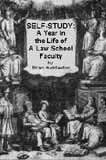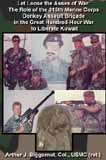I know there's at least one web site devoted to taking pot-shots at The New Yorker, but its more about the people writing for it and gossip and such and I don't think they quibble over factual errors. And I'm sure there are other folks catching errors when they know a lot about a particular subject, but one error in the current issue was glaring to me and I had to check it out.
In a review of HBO's new (airing this Sunday) mini-series "The Pacific", Nancy Franklin talks about the various source material the writers used (and one of those, Eugene Sledge's book, is one of the best first-person war narratives I've ever read). One source Franklin mentions is the war experience of "John Basilone, who was a hero of Guadalcanal and the first enlisted marine to be awarded the Congressional Medal of Honor." (Nancy Franklin, Hell On Earth: HBO's The Pacific, The New Yorker, March 15, 2010, at 68.)
I couldn't keep reading until I did a little research on this. Back in boot camp, we were drilled about the big historic Marine heroes until we knew the details back and forth. This included the two Marines who won two Medals of Honor apiece: Smedley Butler and Dan Daly. I was pretty sure that Daly was an enlisted Marine and that he pre-dated World War II. And, yes, twenty years later my spotty memory was right on those points: as a private in 1901 Daly won his first Medal of Honor in China and fifteen years later, as a Gunnery Sergeant, he was awarded his second one for action in Haiti. (Oh, and THANK YOU Wikipedia - jeez - for the clarification that Butler and Daly were the only two Marines awarded dual Medals of Honor for separate actions: it used to be possible for two Medals of Honor to be awarded for the same action - the Drill Instructors at Parris Island didn't go into that level of detail.)
So on its face this part of the review is completely wrong. How about putting a charitable spin on it? There was another recent factual fudge that stuck in my craw and some other fellow scifi fans noticed the same thing: in the January 25, 2010 New Yorker profile of Neil Gaiman by Dana Goodyear, this passage appears towards the end:"A boy with curly red hair and glasses sprang up and offered his [copy of a book]: Max Calderon, aged twelve, the great-grandson of the science-fiction writer Robert Heinlein." (Dana Goodyear, Kid Goth: Neil Gaiman's Fantasies, The New Yorker, January 25, 2010)
Other folks, more knowledgeable of the master than I am, noted that this kid is actually the grandson of a close friend/obsessive fan of Heinlein's from way back when (and God help this poor kid, born a dozen years or so after Heinlein died, if he really goes around introducing himself at book signings and scifi conventions as his great-grandson). That error is maybe understandable: the article is just providing what the kid said, and it would have taken a too-long explanation to clarify who he really was. But the "Heinlein's great-grandson" aside is pretty damn extraneous to the whole article, so why stick it in there anyway, especially if its completely wrong?
So maybe Franklin, to look at her statement about Basilone in the most favorable light, meant that he was the first Marine to be awarded the Medal of Honor in World War II? Wikipedia's detailed information on the Medal of Honor gives all the recipients, by war, and says Basilone's was awarded for actions at Guadalcanal on October 24-25, 1942. (And, yes, I completely trust Wikipedia as a source for names and dates in this matter: enough military history buffs and descendants of these men are out there to police these articles and ensure their accuracy.) But scanning the list of WWII Medal of Honor recipients turns up another enlisted Marine, Clyde A. Thomason, who was posthumously awarded the Medal of Honor for actions at the Island of Makin (where the hell is that?) on August 17-18, 1942. His separate entry even says that he was "the first enlisted Marine to be awarded the Medal of Honor during World War II." (And the awards's correct name IS just the "Medal of Honor", though it is often referred to as the "Congressional Medal of Honor"; the citation mentions Congress but Congress is not actually involved in the process of awarding the Medal, in most cases.)
The only other possibility I can think of is that maybe the date of Basilone's actual Medal of Honor citation came first: since Thomason died earning his, and they needed to get Basilone back stateside to sell war bonds, its possible his Medal of Honor was the first one issued for an enlisted Marine in WWII. But that's really stretching things: I think most historians focus on the action behind the award, not when the award was presented (and though you can find the text of most of these Medal of Honor citations on-line, Thomason's didn't have a date on it.)
So the most you can say about Basilone, then, is that he was the first enlisted Marine to receive a non-posthumous ("prehumous"???) Medal of Honor. (And that is a significant distinction: a majority, like three-fourths or so, of all modern Medals of Honor have been awarded posthumously.) In Franklin's article, that wouldn't take much clarification to state correctly. So is the New Yorker just getting sloppy and folks with any sort of specialized knowledge or command of trivia in certain subjects can point these things out when they come across an article in their area of expertise? (Or even "area of passing acquaintance" - I'm no expert in Marine Corps history or the Medal of Honor.) John McPhee even wrote a great piece last year ABOUT New Yorker fact checkers and all the effort he's had to put forward meeting their demands during his decades writing there; even little errors like the details of Basilone's Medal of Honor wouldn't get by the fact checkers he described.
OK, that's enough of a rant. Don't get me started about how the New Yorker, like all other publications, don't capitalizes "Marine". (Allright, just a little bit of a start: "soldier" and "sailor" are generic terms, because there are other armies and navies. There are the "British Royal Marines" and such but only one "Marine Corps", whose member are "Marines", capital "M". Like members of a particular political party. Or a religion. Especially like a religion.)
Full blog post...








